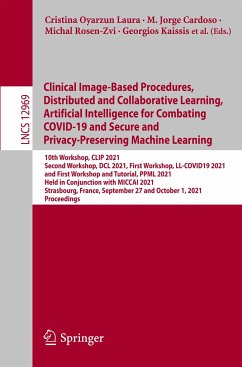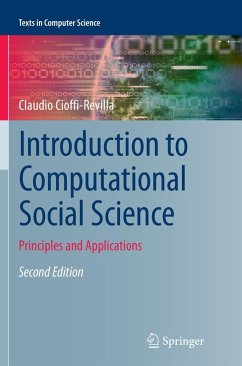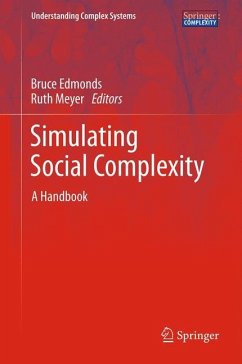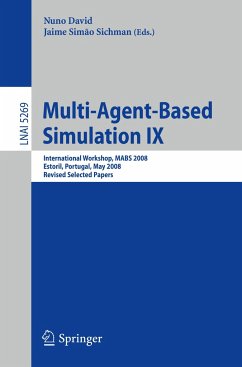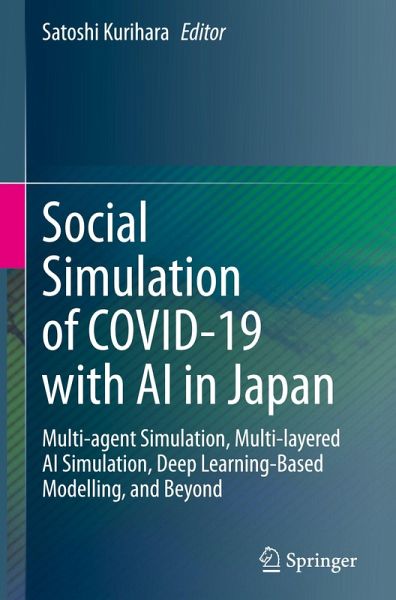
Social Simulation of COVID-19 with AI in Japan
Multi-agent Simulation, Multi-layered AI Simulation, Deep Learning-Based Modelling, and Beyond
Herausgegeben: Kurihara, Satoshi

PAYBACK Punkte
58 °P sammeln!
This book summarises the research findings of the COVID-19 AI & Simulation Project in Japan. The COVID-19 pandemic presented unprecedented challenges to public health systems and socioeconomic stability worldwide, necessitating rapid, computational and evidence-based decision-making under extreme uncertainty. The project exemplifies the integration of advanced computational modeling with public policy formation. The project developed a comprehensive framework for pandemic response that bridged the gap between scientific analysis and practical policy implementation by deploying artificial intel...
This book summarises the research findings of the COVID-19 AI & Simulation Project in Japan. The COVID-19 pandemic presented unprecedented challenges to public health systems and socioeconomic stability worldwide, necessitating rapid, computational and evidence-based decision-making under extreme uncertainty. The project exemplifies the integration of advanced computational modeling with public policy formation. The project developed a comprehensive framework for pandemic response that bridged the gap between scientific analysis and practical policy implementation by deploying artificial intelligence, complex network analysis, multi-agent simulations, fluid simulation, and laser optics.
In the project, implementing deep learning technologies has enabled access to extensive infection spread data, allowing for machine learning-based predictions. Additionally, agent-based simulation was extensively utilized in this project. Agent-based simulation involves recreating a virtual real-world environment where numerous human-like agents interact dynamically. This approach facilitates the reproduction of complex societal problems and the exploration of potential solutions, which can be fed back into real-world problem-solving.
This book serves as a valuable record of how AI and simulation technologies were applied in response to the unprecedent crisis posed by the COVID-19 in Japan. The insights gained from this endeavor will contribute to preparedness for the next inevitable pandemic.
In the project, implementing deep learning technologies has enabled access to extensive infection spread data, allowing for machine learning-based predictions. Additionally, agent-based simulation was extensively utilized in this project. Agent-based simulation involves recreating a virtual real-world environment where numerous human-like agents interact dynamically. This approach facilitates the reproduction of complex societal problems and the exploration of potential solutions, which can be fed back into real-world problem-solving.
This book serves as a valuable record of how AI and simulation technologies were applied in response to the unprecedent crisis posed by the COVID-19 in Japan. The insights gained from this endeavor will contribute to preparedness for the next inevitable pandemic.





